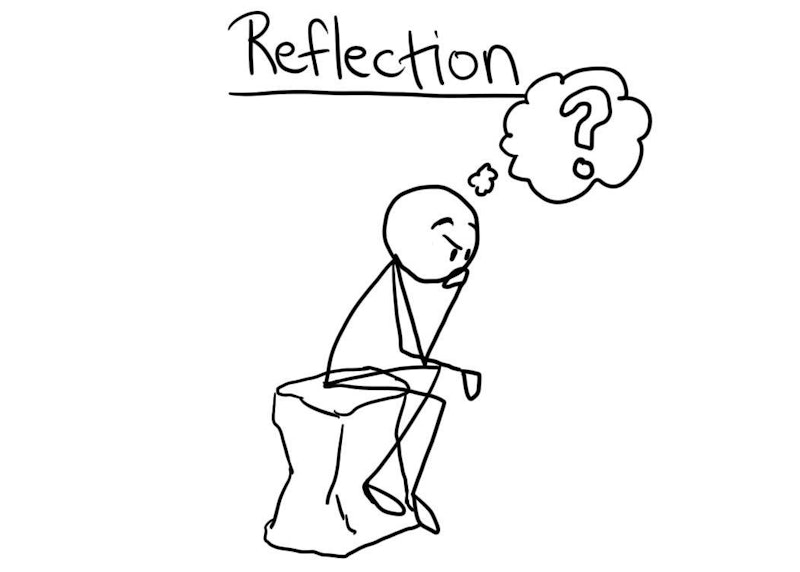Enrichment
What is reflection?
8th August 2016
The word “reflect” is used more often now than it has ever been used before. Not only is it used in the teaching profession, where we are constantly advised to evaluate what we do in the classroom, but it is also used in every-day life, to assess and make positive changes. But what exactly does reflection entail?

Relax yourself - This does not have to be in a quiet room with the lights off and candles lit! (In reality, the chances that we get time to do this are minimal). Find what works for you, this could be 5 minutes before you get to bed or after you have visited the gym.
Stand back - This is not thinking about an event or situation in isolation, but recreating everything else that was involved. This includes the feelings which were experienced at that time and considering why you felt that way. Ask yourself the questions starting with “what”, “where” and “why”. This will not only contextualise the situation, but will effectively start the process of evaluation off.
Deeper honesty - Acknowledge something which you may not be able to do. Sometimes it is easier to reveal and accept the truth to your inner self, before you bring it out into the open. Then start to “weigh up” the other factors which resulted in your actions.
Reflection and learning - Reflect on your learning. Throughout reflection process, the main aspect involves how you feel and the areas you have selected to develop. Use these reflection points when the situation occurs again, to better a situation.
This by all means is not the only method of refection (Pictured below: Gibbs model of reflection, 1988). Above is a method which I have created which can be used to reflect in everyday situations, but also in more professional situations. Find what works for you! Remember, reflection does not have to be after a negative or stressful event. Try and reflect on things which make you feel positive, so that you are able to carry on with these in the future.

This by all means is not the only method of refection (Pictured on right: Gibbs model of reflection, 1988 ). Above is a method which I have created which can be used to reflect in everyday situations, but also in more professional situations. Find what works for you! Remember, reflection does not have to be after a negative or stressful event. Try and reflect on things which make you feel positive, so that you are able to carry on with these in the future.
Daily Digest
To keep up-to-date with the tutor2u Psychology team, follow us on Twitter @tutor2uPsych, Facebook (AQA) / OCR or subscribe to the Psychology Daily Digest and get new content delivered to your inbox!
You might also like
Using mindfulness in the classroom...
24th June 2016
And breathe…
6th July 2016
Does exercise improve our memory?
18th June 2016
Thinking 'I can do better' really can improve performance
25th July 2016
Are you a glass half empty or a glass half full kind of person?
2nd August 2016
Stressed Over A-Level Results Day?
18th August 2016
Exercise: Love It Or Hate It?
11th January 2017
Daily Email Updates
Subscribe to our daily digest and get the day’s content delivered fresh to your inbox every morning at 7am.
Signup for emails